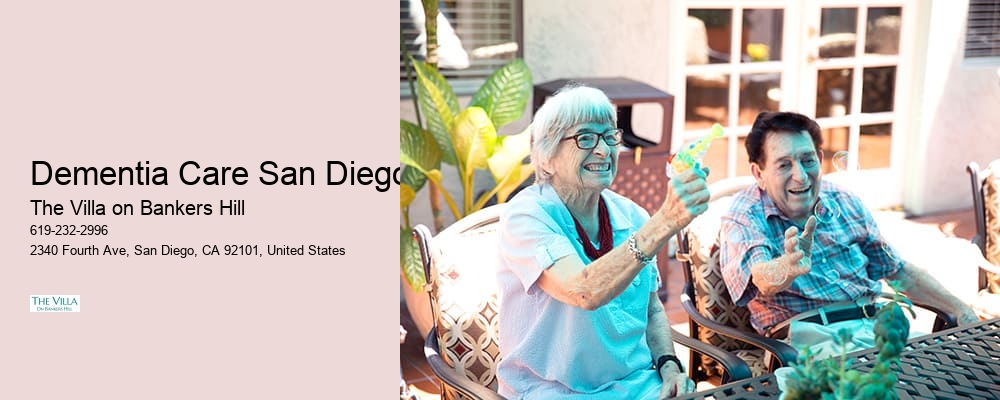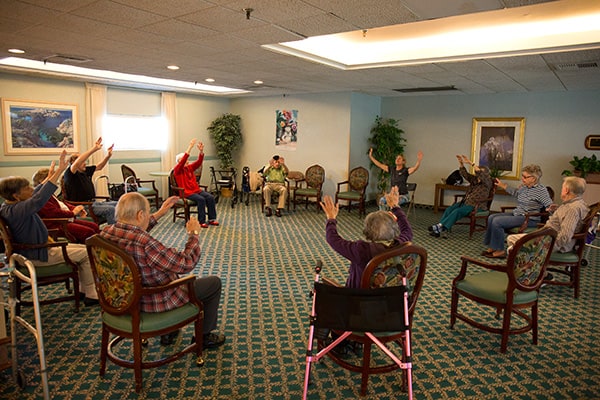

Recognized as a Top San Diego Assisted Living Community in Southern California by the San Diego Union-Tribune, The Villa on Bankers Hill offers a beautiful setting for assisted living and memory care just two blocks from Balboa Park. We provide vital services, including diabetic care, medication management, and assistance with personal grooming and dressing. Our inviting atmosphere features private apartments and bathrooms, along with round-the-clock nursing staff and a dedicated memory care area.

A key benefit of having a 24-hour nursing staff in assisted living facilities, particularly those specializing in memory care, is the enhanced safety and prompt emergency response they provide. Residents with cognitive impairments such as Alzheimer's or other forms of dementia are at an increased risk for falls, medical emergencies, and wandering. Round-the-clock nursing ensures that there is always a trained professional available to respond immediately to any incident, providing peace of mind for residents and their families. The constant presence of nurses also allows for quick assessment and intervention which can be crucial in preventing minor issues from becoming serious health complications.
Continuous monitoring is essential for residents who may experience fluctuations in their health status or cognitive functioning throughout the day and night. A 24-hour nursing team can offer personalized care tailored to each resident's specific needs. This includes administering medications at appropriate times, assisting with daily living activities, and providing support for unique behavioral challenges associated with memory impairment. With a dedicated staff on hand at all times, changes in a resident’s condition can be detected early, allowing for adjustments to care plans on an as-needed basis to ensure optimal wellbeing.
Social interaction plays a critical role in the overall quality of life for individuals residing in memory care facilities. Nurses present around the clock contribute significantly to the social environment by engaging with residents through conversation and activities tailored to their cognitive abilities. They foster a sense of community where residents feel cared for not just physically but emotionally too. This continuous interaction helps combat feelings of isolation that individuals with memory loss might otherwise experience.
The availability of 24-hour nursing staff extends beyond direct patient care; it also supports family members who often carry emotional burdens concerning the wellbeing of their loved ones. Knowing that trained professionals are always there provides reassurance that their family member is safe at all hours, reducing stress and worry. Furthermore, nurses serve as vital communication links between families and physicians, ensuring information about the resident's health is relayed effectively – an especially important service when dealing with complex conditions related to memory loss.
| Facility Name | Description |
|---|---|
| Belmont Village Memory Care | Specializes in memory care with innovative programming and compassionate staff. |
| Spring Hills Memory Care | Offers engaging activities and support for residents with memory impairments. |
| Artis Senior Living | A memory care community focused on meaningful interactions and support. |
| Elmcroft Memory Care | Provides a safe environment for residents with Alzheimer’s and other dementia-related conditions. |
| Riverwalk Memory Care | Offers personalized care and support for those with memory-related challenges. |